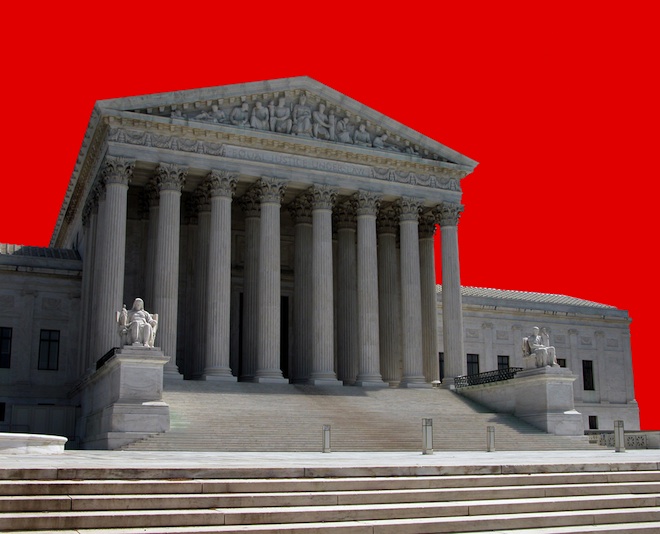We know there’s some chance the Supreme Court will decide to take a pass on President Obama’s health care law for a few years — until after its mandatory coverage mandate takes effect in 2014. And we know that if they do rule on the central challenge to the Affordable Care Act this year, precedent is on the side of upholding that piece of the law.
But what happens if they determine that the mandate is unconstitutional anyhow?
On Tuesday, the court will hear arguments about just how “severable” the ACA is. Major legislation often includes what’s known as a “severability clause,” to prevent courts from invalidating entire laws when they find that small sections of those laws violate the Constitution.
By dint of a small, but highly consequential legislative oversight, the ACA does not include such a clause. That means it’ll be up to the justices to decide how much of the law can stand if they rule that the individual mandate violates the Constitution.
There are three main possibilities: The court could throw out the mandate alone; they could throw out the mandate along with two other key provisions of the law that are very closely tied to the mandate; or they could throw out the entire thing.
The challengers will argue that if the mandate falls, the rest of the law must go as well — that the law is “inseverable.” That, of course, is the conservative challengers’ ultimate goal. But it’s also a concession that the mandate is necessary if Congress is going to require insurance companies to sell coverage to all people, without bias to pre-existing medical conditions — one of the law’s central and most popular goals.
So far only one federal trial court judge — Judge Roger Vinson of the U.S. District Court for the Northern District of Florida — has ruled that the entire law must go on the basis of his determination that the mandate is unconstitutional.
“I think that it’s almost inconceivable that they would strike the entire statute,” said Timothy Jost — a legal scholar, and supporter of the health care law. “It would be a major threat to the legitimacy of the court.”
There are important signs that he’s right. Vinson’s determination was reversed by the 11th Circuit Court of Appeals, which also found the mandate unconstitutional, but held that it could be stricken without disturbing the rest of the law. The bathwater, but not the baby.
As Samuel Y. Sessions and Allan S. Detsky wrote in The New England Journal of Medicine recently, “Many ACA provisions are already in effect and thus clearly can function without the mandate, which becomes effective in 2014.”
That leaves the two other, likelier outcomes.
In the event of an adverse ruling, the administration takes a peculiar view: that the law is “partially severable.” They say that if the court scotches the mandate, it should also eliminate provisions in the law guaranteeing that everybody will receive health insurance, regardless of prior health conditions. This reflects a certain policy rationale: that the health insurance system will crumble if people aren’t required to buy into it, and thus only sick people take advantage of the coverage guarantee.
But the administration appears to be ceding a tremendous amount of political leverage by making this case. If the court strikes the mandate and the coverage guarantee, it will turn Obama’s signature accomplishment into a very modest one. If it strikes the mandate alone, Obama could demand, with great urgency, that Congress replace it with something less controversial — lest the insurance industry ultimately collapse.
Jost is flabbergasted. “It’s beyond me,” he said. “It seems to me that they could argue that it’s a proper [instrument] without arguing that it’s completely essential.”
The court, therefore, has enlisted an outside attorney — H. Bartow Farr III — to make that case. He’ll argue that if the court strikes the mandate then, as the 11th Circuit held, the entire rest of the law can stand.
But when the attorneys defending the law argue otherwise, that’ll be a tough sell.






